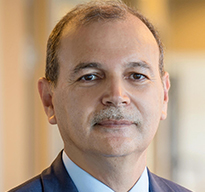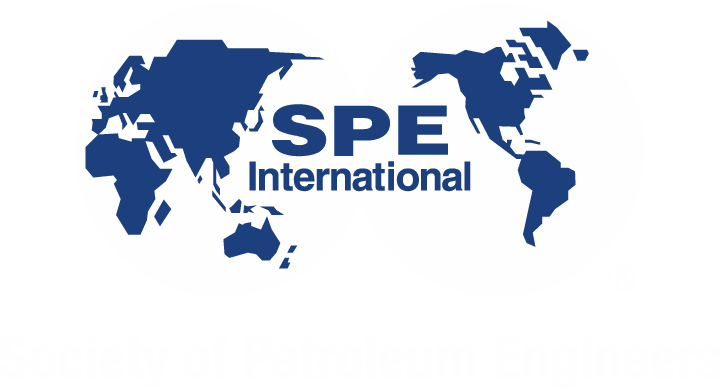Agenda
Wednesday, February 24
As the global economy seeks solutions for decarbonisation, CCUS will be a critical tool in meeting this goal. This technology is receiving renewed focus by the oil and gas industry owing to its longstanding capability in safely sourcing, transporting and injecting CO2 at scale through operating CO2-EOR projects. This session will explore the outlook of future CCUS projects, expanding CO2 value chains and emerging commercial models to accelerate deployment
Presentations:
- Carbon Capture Utilisation and Storage (CCUS) Projects and Policies Overview
Ponciano Manalo, IHS Markit - Net Zero Teesside: Creating the UK’s first decarbonised cluster in North East UK
Andy Lane, Net Zero Teesside - From Quest to Polaris: Lessons Learned to Progress the Next Wave of CCS
Tim Wiwchar, Shell - ADNOC CCUS Drivers
Ahmed BinAmro, ADNOC
CCUS has seen an increase in project activities in the oil and gas sector. It is easy to predict its rapid evolution in all the aspects, however, CCUS projects sustainability will likely become more demanding. In this session a selected number of significant successful and less-successful stories from projects in the operation phase will be presented and discussed with the aim to share and provide as many key lessons learnt as possible for improving the current industrial best practices and make future applications more efficient and economical attractive.
Presentations:
- Boundary Dam CCUS Project, CO2 from Power Plant to oil field for EOR
Beth (Hardy) Valiaho, International CCS Knowledge Centre - Alberta Carbon Trunk Line
Jeff Pearson, Wolf Midstream - Existing CCUS Operation
Zayed Al Shehhi, ADNOC
This session is dedicated to various aspects of large-scale demonstration projects for CO2 capture, including basic economics, financing, and project planning. The history of CCUS projects has seen various challenges and many projects have been proposed, but precious few have made it to the operating stage. The scope of this session covers the entire value chain, from CO2 capture to transportation to sequestration. The basic economics of projects will be covered, highlighting the current gaps between CCUS project economics and regulatory frameworks around the world. Different financial mechanisms will be reviewed and compared with consideration of each approach’s strengths and weaknesses. Finally, project planning process will be discussed, with emphasis on key barriers and long lead time items that need to be considered early in the planning process.
Presentations:
- The Evolution of Sustainability: Scope and Implications for CCUS
Mustafa Babiker, Saudi Aramco - Development of Carbon Capture, Carbon Utilization and Negative Emission Technologies
Frank Morton, Southern Company Services - Recent development in Financing in CCUS
Carolina Coll, CGG - A Paradigm Shift for CO2 Injection Simulations
Kate Evans, Halliburton
CO2 capture is becoming more important and will go beyond the certain traditional applications such as power plant post-combustion. The industries will be looking into reducing the cost of capturing while integrating with cost-effective low emission energy supply chain. This session will highlight and discuss different aspects of CO2 capture which impact the techno-economy features of the project. Factors which need to be considered and evaluated for a successful deployment, would include (but not limited to):
- The objective of CO2 capture
- Is it due to environmental regulation only or monetisation by CO2 utilisation?
- Source of CO2
- Which sources within the plants would have the lowest cost of capture ($/tone of CO2).
- Pre-combustion and post-combustion differences.
- Selecting criteria of commercially available technologies for large-scale projects.
Presentations:
- Pre- or post-combustion CO2 capture with amine systems
Laurent Thomas, Shell - Assessment of source specific CO2 capture for power plant and industrial sources as an opportunity to reduce cost of capture
Krish Krishnamurthy, Linde - Decarbonising Coal Use for Electricity/ Hydrogen Production - Integration of Coal Gasification and CO2 Capture-
Akira Yabumoto, J-POWER - ADNOC Sour Gas CO2 Project overview
Alya Al Ali, ADNOC Sour Gas
Thursday, February 25
Speaker(s):

Kamel Ben-Naceur
2022 SPE President
CEO
Nomadia Energy Consulting
Recently, Energy Ministers from the G20 group of leading economies have endorsed the circular carbon economy (CCE), which is a holistic, integrated, inclusive, and pragmatic approach to manage global GHG emissions through a closed loop system, involving 4Rs: reduce, reuse, recycle, and remove. CCUS is a suit of key technologies within the CCE framework, contributing to reducing, reusing, recycling, and removing emissions across many sectors. CCUS can help decarbonising power generation and many hard to abate sectors such as cement, iron and steel, and chemicals. According to the Intergovernmental Panel on Climate Change (IPCC), achieving ambitious climate goals will be unobtainable without CCUS—therefore CCUS is critical and breakthrough innovations remain a key driver to overcome the barriers for CCUS deployment at a scale consistent with ambitious climate goals. This panel session will discuss how to unlock the potential of CCUS for achieving deep emissions reduction across the oil and gas sector.
Presentations:
- CCS in the Carbon Circular Economy – challenges and opportunities
Devin Shaw, Shell - The Role and Value of CCU in Climate Change Mitigation
Niall MacDowell, Imperial College - Circular Carbon Economy: Pathway to Net-Zero Emissions
Sunil Kokal, Saudi Aramco - Role of Hydrogen and Green Fuels in the Circular Carbon Economy
Mani Sarathy, NEOM
Carbon capturing, utilisation and storage requires well characterised reservoirs to ensure long-term storage of CO2. Comprehensive surveillance and measurement, monitoring and verification (MMV) programs play a critical role in both EOR and non-EOR applications. In Saskatchewan, Canada, two main projects, Weyburn and Aquistore have seen the injection of 40 million tonnes of CO2 over the past 20 years. As part of these projects, much work has been carried out in different MMV systems. It can be concluded that CO2 has remained within the reservoirs, and the ability to track it via these methods has been proven.
Whether in Canada, the Permian Basin of the United States, or anywhere else in the world utilising CO2 for Enhanced Oil Recovery (EOR) is a proven recovery mechanism in both light and heavy(ier) oil fields. CO2 injection can provide pressure support, improve displacement efficiency, and reduce viscosity of the oil. Continued CO2 EOR deployment will help maximise oil recovery and satisfy global energy demands, while simultaneously reducing carbon dioxide levels in the atmosphere.
Presentations:
- Forecasting for CCUS EOR Performance
David Hampton, Oxy - Integrated Multidisciplinary Reservoir Study for a Successful Co2 Storage Planning
Rosa Atena, Eni - CO2 Storage-Surveillance and Monitoring
Petro Nakutnyy, Saskatchewan Research Council; Erik Nickel, Petroleum Technology Research Centre - Real Examples of EOR CO2 Projects Surveillance and Measurement in ADNOC Onshore Fields
Haitham Al Saadi, ADNOC Onshore - Assessing the Suitability of Depleted Carbonate Gas Reservoir for Bulk Carbon Dioxide Sequestration using 3-way Coupled Modeling
Prasanna Chidambaram, Petronas Research Sdn. Bhd.
CCUS technologies are at varying levels of maturity today, although some of them are already deployed at large scale, others, including those that hold out the promise of better performance and lower unit costs, require further development. Even CCUS technologies that are commercial and competitive can benefit from further integration efforts. As CCUS involves integrated activities for CO2 capture and EOR, where numerous domains have direct and/or indirect influence throughout the life of a project, technological advances for surface and subsurface components of the integrated system keep improving the integrity and efficiency of the CCUS projects. While enhancements in surface components continue with solid outcomes, dealing with subsurface especially in mature fields is still open to further advancements. Some selected examples on recent technologies and innovations for CCUS will be highlighted in this session, as well as the remaining challenges.
Presentations:
- Dual Slant Wells Development Pilot
Bichlan Thai, Occidental ORCM -
Utilising Molten Carbonate Fuel Cell Technology as a Novel Approach for Simultaneous Carbon Capture and Power Production
Hossein Ghezel-Ayagh, FuelCell Energy - Achieving Net Zero with Zero Carbon Fuels
Damian Beauchamp, 8 Rivers - Novel Hybrid Systems for CO2 Capture
Mohammad Abu Zahra, Khalifa University
